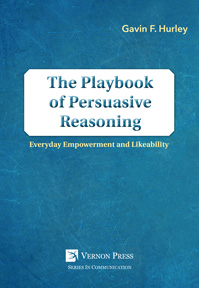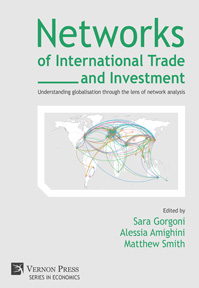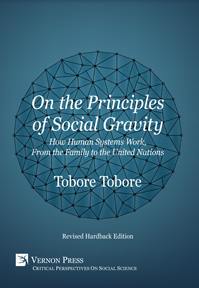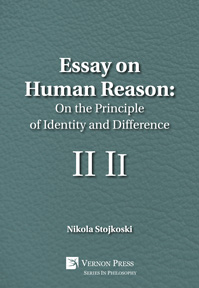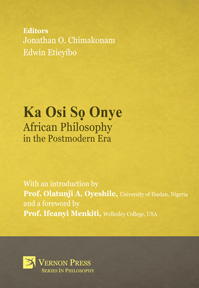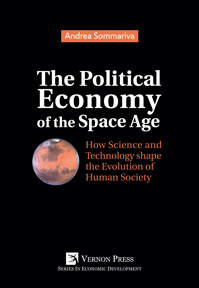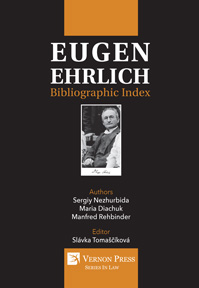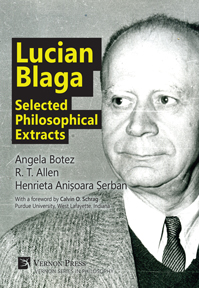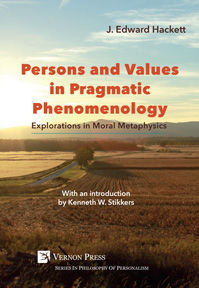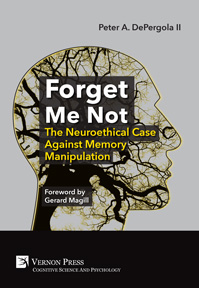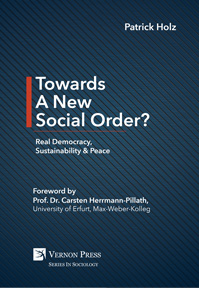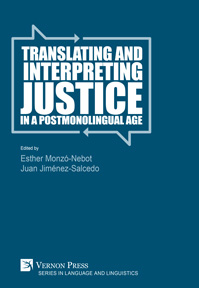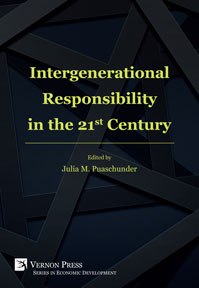Search
Browse
by Publication status
by Subject
Anthropology (26) Art (126) Business and Finance (27) Cognitive Science and Psychology (56) Communication and Journalism (49) Economics (63) Education (70) History (150) Human Geography (22) Interdisciplinary (43) Language and Linguistics (135) Law (16) Music Studies (19) Philosophy (162) Political Science and International Relations (104) Sociology (317) Statistics and Quantitative Methods (21)by Series
Series in Literary Studies (68) Series in Philosophy (59) Series in Education (54) Series in Sociology (45) Bridging Languages and Scholarship (33) Series in Politics (32) Series in World History (32) Series in Language and Linguistics (25) Series in Philosophy of Religion (22) Cognitive Science and Psychology (21) Series in American History (20) Series in Art (19) Critical Perspectives on Social Science (18) Series in Cinema and Culture (16) Series in Critical Media Studies (16) Curating and Interpreting Culture (15) Series on the History of Art (14) Economics (14) Series in Anthropology (13) Series in Business and Finance (13) Series in Music (12) Series in Communication (9) Series in Performing Arts (9) Philosophy of Personalism (8) Series in Law (8) Series on Climate Change and Society (8) Series in Economic Methodology (7) Women's Studies (7) Classics in Economics (6) Series in Economic Development (6) Philosophy of Forgiveness (5) Series in Built Environment (5) Series in Economic History (5) Series in Philosophy of Science (5) Series in Social Equality and Justice (5) Series on the History of Science (4) Serie En Estudios Literarios (3) Serie en Sociología (3) Series in Contemporary History (3) Series in Creative Writing Studies (3) Series in Design (3) The Interdisciplinary Built Environment (3) Serie en Comunicación y Medios (2) Serie en Historia (2) Serie en Música (2) Series in Heritage Studies (2) Series in Innovation Studies (2) Series in Philosophy of Race (2) Serie en Ciencias Políticas (1) Serie en Entorno Construido (1) Serie en Estudios Culturales (1) Serie en Filosofía (1) Serie en Filosofía de la Ciencia (1) Serie sobre Cambio Climático y Sociedad (1) Series in Classical Studies (1) Series in Economics of Technological Change (1) Series in Urban Studies (1)by Language
English Spanishby Author
Market Abuse Regulation in South Africa, the United States of America and the United Kingdom
Howard Chitimira, North West University, South Africa
Availability: In stock
236pp. ¦ $56 £46 €53
This book provides a concise comparison of the regulation and enforcement of the anti-market abuse laws (insider trading and market manipulation) in South Africa, the United States of America (USA) and United Kingdom (UK). Bringing together a number of previously published articles, the book provides a novel discussion of the challenges associated with the enforcement of market abuse laws in both developing countries such as South Africa and developed ones such as the USA and the UK. This is primarily done to examine and expose the current strengths and weaknesses of market abuse laws in relation to certain aspects of the corporate, securities and financial markets environments in South Africa, the USA and the UK. Accordingly, chapters two to five of the book unpack the regulation and enforcement of market abuse laws in South Africa and the USA in a comparative perspective. Thereafter, chapters six to eight of the book discuss the regulation and enforcement of market abuse laws (Financial Markets Act 19 of 2012) and other related statutes in South Africa and the UK. The book proposes some measures that could be utilised to enhance the enforcement of anti-market laws in South Africa, USA and the UK. New market abuse-related challenges that occurred during the global financial crisis are also briefly discussed. The book further provides a relatively adequate overview of the comparative analysis of the regulation of market abuse in South Africa versus two key developed and respected jurisdictions, namely, the USA and the UK. Accordingly, it is hoped that the book can aid regulatory authorities, financial market participants, academics, students and other interested readers to understand market abuse offences and possible measures that could be employed to combat such offences.
The Playbook of Persuasive Reasoning
Everyday Empowerment and Likeability
Gavin F. Hurley, Ave Maria University
Availability: In stock
190pp. ¦ $58 £41 €47
'The Playbook of Persuasive Reasoning: Everyday Empowerment and Likeability' provides an easy, practical guide to the strategies of persuasive reasoning, which Gavin Hurley argues is crucial to all effective communication. Helping professionals and students to become better and more likeable communicators, this fundamental “playbook” outlines numerous eye-opening communicative maneuvers for readers of all levels and backgrounds. It offers a unique approach to argumentation and persuasion and moves away from the more conventional methods which are often overtechnical, unnecessarily complex or too science oriented. Hurley demonstrates how to successfully apply these strategies of cooperative argumentation to your life in order to succeed professionally, socially and cerebrally. This he argues, will allow you to empower your messaging and increase your social magnetism. 'The Playbook of Persuasive Reasoning' is a down-to-earth guide on effective rhetorical strategizing. It is written for everyday application, based on everyday examples, and embedded in everyday language. Today, successful communication is a highly sought-after trait by international employers, clients, and customers alike. Gavin Hurley shows how a wide range of people can benefit from learning how to deliver more abstract material in an effective manner: both verbally and written. This guide is particularly appealing for professionals, including business managers, as well as academics and students, including public intellectuals. 'The Playbook of Persuasive Reasoning' is a useful book for anyone wanting to enrich their skills and strengthen their powers of communication in order to have a social and professional advantage.
Networks of International Trade and Investment
Understanding globalisation through the lens of network analysis
Edited by
Sara Gorgoni, University of Greenwich et al.
Availability: In stock
344pp. ¦ $68 £48 €55
In recent decades, the international economy has witnessed fundamental changes in the way manufacturing is organised: products are no longer manufactured in their entirety in a single location. Instead, the production process is often split across a number of stages located in countries that are frequently far apart from each other. By spreading out their manufacturing and supply chain activities globally through international investment and intra-firm trade, Multinational enterprises (MNEs) play a focal role in this reorganisation of production. Our ability to understand the global economy, therefore, requires an understanding of the interdependencies between the entities involved in such fragmented production. Traditional methods and statistical approaches are insufficient to address this challenge. Instead, an approach is required that allows us to account for these interdependencies. The most promising approach so far is network analysis. ‘Networks of International Trade and Investment’ makes a case for the use of network analysis alongside existing techniques in order to investigate pressing issues in international business and economics. The authors put forward a range of well-informed studies that examine compelling topics such as the role of emerging economies in global trade and the evolution of world trade patterns. They look at how network analysis, as both an approach and a methodology, can explain international business and economics phenomena, in particular, in relation to international trade and investment. Providing a comprehensive but accessible explanation of the applications of network analysis and some of the most recent methodological advances in its field, this edited volume is an important contribution to research in international trade and investment.
On the Principles of Social Gravity
How Human Systems Work, From the Family to the United Nations
March 2018 / ISBN: 978-1-62273-396-5Availability: In stock
222pp. ¦ $58 £48 €55
“On the Principles of Social Gravity” proposes a radical new way of thinking about social systems. It explains that all social systems –institutions created of and for human beings e.g. healthcare system, family, military etc., – are held together or governed by nine principles or rules. Using these principles, it examined the problems facing the US healthcare system, criminal justice system, social security, student debt crisis, tax policies, immigration, the political system, and the United Nations. Then, provided novel and unique solutions to them. It expands on the meaning of social entropy and explains how it affects all social systems. It explains new terms like social gravity, de-entropification, primary and secondary contributors, negative and positive homogeneity, positive and negative homogenous group, homogenization, etc. that many readers will find enlightening and very interesting. It is a book that is likely to spark national and even global discussions about many of the institutions we have created. It’s originality and usefulness makes it very likely that it will find a wide audience and many of its terms may become popular in the wider society. Since anyone could use the same principles developed in this book to understand and solve the problems with any social system, it will be useful for adoption in the university, for researchers and professors in the social sciences.
Essay on Human Reason: On the Principle of Identity and Difference
February 2018 / ISBN: 978-1-62273-379-8Availability: In stock
136pp. [Color] ¦ $55 £42 €48
The nature of human reason is one of the thorniest of mysteries in philosophy. The reason appears in many specific forms within general areas such as cognition, thinking, experiencing beauty, and moral judgment. These forms are “perfectly” known in philosophy, yet an unknown pattern has been noticed which shows us that they are all a variation of the same theme: truth is an identity relation between the “thought” and “reality”; justice is an identity relation between the given and the deserved; beauty is an identity relation as rhyme is an identity relation between the final sounds of words; rhythm is an identity relation between time intervals; symmetry is an identity relation between two halves; proportion is an identity relation between two ratios; anaphora is an identity relation between the initial words. Particular things are identities in themselves and universals are identities between particulars. One idea associates another idea identical to it; an analogy is an identity between relations; induction is an identification between the known and unknown instances; and all the logic rests on the law of identity. What is common for all of them is the nature of reason itself.
Fixed or Flexible Exchange Rates? History and Perspectives
Marin Muzhani, CDI College, Canada
Availability: In stock
386pp. ¦ $65 £52 €60
The economy of the industrialized countries in the 21st century has already moved to a new level of mass production and technology never seen before, thanks in part to globalization, advanced technologies, new organization management methods, and innovative supply chain. A relatively large number of mass-produced commodities (characterized as non-premium) and services in Western economies are somehow sold at discounts rather than regular prices at a much higher frequency that was never seen before. This phenomenon has completely changed how we look at the theory of the firm in microeconomics. This book is indented to introduce new ideas and theories by challenging the current modern micro-and-macro economic theories. In a globalized world, the economies of advanced countries have entered a new phase called “economy pricing,” where most of the mass commodities are sold at a low price during certain periods of the year, called ‘sales events’. In addition to low prices, most industrialized countries have had record low inflation, low-interest rates, low growth, and low unemployment rates. This book will contend how the “Economy Pricing System” is about to revolutionize how people look at a real economy’s micro and macro effects.
Ka Osi Sọ Onye: African Philosophy in the Postmodern Era
Edited by
Jonathan O. Chimakonam, University of Pretoria, South Africa
and Edwin Etieyibo, University of the Witwatersrand
Availability: In stock
394pp. ¦ $67 £50 €57
This collection is about composing thought at the level of modernism and decomposing it at the postmodern level where many cocks might crow with African philosophy as a focal point. It has two parts: part one is titled ‘The Journey of Reason in African Philosophy’, and part two is titled ‘African Philosophy and Postmodern Thinking’. There are seven chapters in both parts. Five of the essays are reprinted here as important selections while nine are completely new essays commissioned for this book. As their titles suggest, in part one, African philosophy is unfolded in the manifestation of reason as embedded in modern thought while in part two, it draws the effect of reason as implicated in the postmodern orientation. While part one strikes at what V. Y. Mudimbe calls the “colonising structure” or the Greco-European logo-phallo-euro-centricism in thought, part two bashes the excesses of modernism and partly valorises postmodernism. In some chapters, modernism is presented as an intellectual version of communalism characterised by the cliché: ‘our people say’. Our thinking is that the voice of reason is not the voice of the people but the voice of an individual. The idea of this book is to open new vistas for the discipline of African philosophy. African philosophy is thus presented as a disagreement discourse. Without rivalry of thoughts, Africa will settle for far less. This gives postmodernism an important place, perhaps deservedly more important than history of philosophy allocates to it. It is that philosophical moment that says ‘philosophers must cease speaking like gods in their hegemonic cultural shrines and begin to converse across borders with one another’. In this conversation, the goal for African philosophers must not be to find final answers but to sustain the conversation which alone can extend human reason to its furthermost reaches.
The Political Economy of the Space Age
How Science and Technology Shape the Evolution of Human Society
Andrea Sommariva, SDA Bocconi, Milan, Italy
Availability: In stock
258pp. ¦ $61 £46 €52
This book provides answers to the questions of why human-kind should go into space, and on the relative roles of governments and markets in the evolution of the space economy. It adopts an interdisciplinary approach to answer those questions. Science and technology define the boundaries of what is possible. The realization of the possible depends on economic, institutional, and political factors. The book thus draws from many different academic areas such as physical science, astronomy, astronautics, political science, economics, sociology, cultural studies, and history. In the literature, the space economy has been analyzed using different approaches from science and technology to the effects of public expenditures on economic growth and to medium term effects on productivity and growth. This book brings all these aspects together following the evolutionary theory of economic change. It studies processes that transform the economy through the interactions among diverse economic agents, governments, and the extra-systemic environment in which governments operate. Its historical part helps to better understand motivations and constraints - technical, political, and economical - that shaped the growth of the space economy. In the medium term, global issues - such as population changes, critical or limited natural resources, and environmental damages – and technological innovations are the main drivers for the evolution of the space economy beyond Earth orbit. In universities, this book can be used: as a reference by historians of astronautics; for researchers in the field of astronautics, international political economy, and legal issues related to the space economy. In think tanks and public institutions, both national and international, this book provides an input to the ongoing debate on the collaboration among space agencies and the role of private companies in the development of the space economy. Finally, this book will help the educated general public to orient himself in the forest of stimuli, news, and solicitations to which he is daily subjected by the media, television and radio, and to react in less passive ways to those stimuli.
Re-Imagining Old Age: Wellbeing, care and participation
Marian Barnes, University of Brighton
et al.
Availability: In stock
214pp. ¦ $59 £42 €48
The understanding that humans are relational beings is central to the development of an ethical perspective that is built around the significance of care in all our lives. Our survival as infants is dependent on the care we receive from others. And for all of us, in particular, in older age, there are times when illness, emotional or physical frailty, mean that we require the care of others to enable us to deal with everyday life. With this in mind, this book presents the findings of a project that seeks to understand what wellbeing means to older people and to influence the practice of those who work with older people. Its starting point was a shared commitment amongst researchers and an NGO collaborator to the value of working with older people in both research and practice, to learn from them and be influenced by them rather than seeing them as the ‘subjects’ of a research project. Theoretically, the authors draw upon a range of studies in critical gerontology that seek to understand how experiences of ageing are shaped by their social, economic, cultural and political contexts. By employing a broad body of work that challenges normative assumptions of ‘successful’ ageing,’ the authors draw attention to how these assumptions have been constructed through neo-liberal policies of ‘active ageing.’ Notably, they also apply insights from feminist ethics of care, which are based on a relational ontology that challenges neo-liberal assumptions of autonomous individualism. Influenced by relational ethics, they are attentive to older people both as co-researchers and research respondents. By successfully applying this perspective to social care practice, they facilitate the need for practitioners to reflect on personal aspects of ageing and care but also to bridge the gap between the personal and the professional.
Eugen Ehrlich: Bibliographic Index
Edited by
Slávka Tomaščíková, Pavol Jozef Šafárik University in Košice, Slovakia
Availability: In stock
352pp. ¦ $66 £49 €56
The Bibliographic Index EUGEN EHRLICH is a guide through available materials containing information about the life, scientific, educational, legislative and social activities of the Austrian lawyer and university professor in the period of 1896-1918. Eugen Ehrlich was the Dean in 1901-1902 and 1908-1909 and the Vice-Dean of the Faculty of Law in 1902-1903 and 1909-1910, the Vice-Rector in 1907-1908, and the Rector of Franz Joseph University in Czernowitz in 1906-1907 (now Ukrainian: Chernivtsi). Moreover, ex officio, he was a member of the local parliament. The Index includes the foreword of the compilers, an introductory article, a selected basic chronology with the dates of the life and work of Eugen Ehrlich, and the four main structural parts: “List of works by Eugen Ehrlich”, “Eugen Ehrlich as editor”, “Literature about Eugen Ehrlich’s life and activity” and “Appendices: Documents from Chernivtsi University Scientific Library holdings”. “List of works by Eugen Ehrlich”, “Periodicals with Eugen Ehrlich's publications”, “List of used periodicals”, and “Name index” are all provided for the convenience of users. The “Name index” includes all the names recorded in the main text of the publication (numbers of bibliographic records of works devoted to individual persons are enclosed in parentheses). The book contains photographs of Eugen Ehrlich and photographs of materials linked to his life and activities. They have made the bibliographic index more attractive and more interesting for readers. The Index can help users find necessary documents and verify the accuracy of existing information, that it becomes a prerequisite for further research, and finally, it will be useful to all who are interested in Eugen Ehrlich’s life journey and scientific legacy.
Lucian Blaga: Selected Philosophical Extracts
Edited by
R. T. Allen et al.
Availability: In stock
190pp. ¦ $58 £44 €49
After the Editor's General Introduction, the extracts include central elements of Blaga’s metaphysics, general epistemology, philosophies of science, history, religion, language and especially metaphor, the experience of space and time, art, and finally culture which includes all of them, especially the presence in all of ‘style’ and distinctive ways of practising them. All these extracts are linked by his general epistemology, especially his distinction between two types of knowledge: ‘paradisiac’ or Type 1, which is that of everyday awareness and the current methods, concepts and presuppositions of the sciences of nature and humanity, plus mathematics and philosophy, and accumulates in ‘plus knowledge’ and resolves problems in standard ways; and ‘Luciferican’ or Type 2, which opens up the ‘mysteries’ of new realms of reality which do not fit the current methods, concepts and presuppositions, and so results in ‘minus’ knowledge, the awareness that there are things which at the moment we cannot understand. For these ‘mysteries’ new methods, concepts and presuppositions are required, which ‘abyssal’ categories can supply, ones below those we normally employ and may be aware of. It is part of man’s role in the cosmos to reveal such mysteries. They are also linked by Blaga's awareness of historical changes, especially ‘dogmatic aeons’ in which a prevailing framework of categories, etc., guides knowledge and research, and ones in which Type 2 knowledge dominates and new frameworks are eventually created. Each extract has its own Introduction which places it in the context of the rest of his interlinked philosophy. They show how Blaga, with both general themes and concepts and also with particular examples, combines much of the concerns and methods of Analytic and Continental philosophy, and how his historical perspective applied especially to modern times long before anyone spoke of 'postmodernism', and thus as in his lifetime.
Persons and Values in Pragmatic Phenomenology
Explorations in Moral Metaphysics
J. Edward Hackett, Savannah State University
Availability: In stock
250pp. ¦ $61 £44 €49
This book brings together the author’s overall research trajectory of the last five years of his life and the questions he has been asking himself: What is the person? And, what are values? In answering the latter question, Hackett arrived at an answer within the boundaries of Max Scheler, the German phenomenologist, but consequently started to explore the depths of which Scheler’s value ontology was predicated on certain assumptions about the person. From these questions, Hackett started to draw upon philosophical approaches that thematize experience—pragmatism and phenomenology. Rooted in the philosophical contributions of Scheler and the American philosopher, William James, this book guides the reader through a fascinating exploration of these philosophical approaches in relation to the person and values. Through thematizing experience, this book reveals that the ontology of value for Scheler resides not only in a person’s intentionality but also in the being-of-an-act. As such, this book argues that the deficit of an ontology of value in Scheler rests on interpreting his affective intentionality in much the same way that Heidegger employed phenomenology to discern the ontological care structure of Dasein. In other words, for Scheler, the ontology of value rests on the manner in which values were realized by a person’s intentionality. Moreover, this book goes further to reveal that the intentional act life is the source of participation and can be understood as a process-based account of value, otherwise known as account participatory realism. Importantly, within participatory realism Hackett addresses how values have their origin in the process of intentionality since intentionality is generative of meaning. As an important contribution to the field of moral metaphysics, Hackett’s critical reflection on the person and values provides a stimulating insight into some of the key debates surrounding pragmatism and phenomenology that will be of great interest to both experienced scholars and researchers, alike.
Forget Me Not: The Neuroethical Case Against Memory Manipulation
Peter A. DePergola II, University of Massachusetts Medical School; College of Our Lady of the Elms
Availability: In stock
312pp. ¦ $64 £48 €54
The first philosophical monograph on the ethics of memory manipulation (MM), "Forget Me Not: The Neuroethical Case Against Memory Manipulation" contends that any attempt to directly and intentionally erase episodic memories poses a grave threat to the human condition that cannot be justified within a normative moral calculus. Grounding its thesis in four evidential effects – namely, (i) MM disintegrates autobiographical memory, (ii) the disintegration of autobiographical memory degenerates emotional rationality, (iii) the degeneration of emotional rationality decays narrative identity, and (iv) the decay of narrative identity disables one to seek, identify, and act on the good – DePergola argues that MM cannot be justified as a morally licit practice insofar as it disables one to seek, identify, and act on the good. A landmark achievement in the field of neuroethics, this book is a welcome addition to both the scholarly and professional community in philosophical and clinical bioethics.
Towards A New Social Order? Real Democracy, Sustainability & Peace
January 2018 / ISBN: 978-1-62273-367-5Availability: In stock
302pp. ¦ $64 £47 €54
This contribution argues that a long-established social order has been in place since the first stratified societies in the Near Middle East which unavoidably comes with substantial economic, political and environmental repercussions. Part I of the book dissects the various facets of this order, which is termed the social dominance paradigm, while in Part II a fundamentally different order, the peace paradigm, is introduced. The latter rests on real democracy (in the Athenian sense), sustainability and peace. As such, both paradigms function as vehicles for further analysis and research while the peace paradigm also provides a rough plan for the implementation of transformational change. Typically, political, economic, social, and environmental research seeks to increase specialized knowledge. Here, however, the overall intent is to utilize interdisciplinary evidence and connect the dots between a number defining features within seemingly modern societies. The argument is that these are, in fact, not modern at all but follow an ancient template of power, control, and coordination concentrated in the hands of the few. Potentially, this contribution can function as a trans-disciplinary methodological framework as well as an information hub for researchers in the fields of political and social sciences, history, anthropology, evolutionary biology, organization and peace studies. Practitioners who are interested in fundamental social change may also find the issues raised to be of interest. As such, this book provides a generalist, evidence-based discussion of a multi-disciplinary nature that may pique the interest of both experts and amateurs alike.
Translating and Interpreting Justice in a Postmonolingual Age
Edited by
Esther Monzó-Nebot, Universitat Jaume I, Spain
and Juan Jiménez Salcedo, Universidad Pablo de Olavide, Spain
Availability: In stock
154pp. ¦ $55 £40 €45
Postmonolingualism, as formulated by Yildiz, can be understood to be a resistance to the demands of institutions that seek to enforce a monolingual standard. Complex identities, social practices, and cultural products are increasingly required to conform to the expectancies of a norm that for many is no longer considered reasonable. Thus, in this postmonolingual age, it is essential that the approaches and initiatives used to counter these demands aim not only to understand these hyper-diverse societies but also to deminoritize underprivileged communities. ‘Translating and Interpreting Justice in a Postmonolingual Age’ is an attempt to expand the limits of postmonolingualism as a framework for exploring the possibilities of translation and interpreting in mediating between the myriad of sociocultural communities that coexist today. Challenging assumptions about the role of translation and interpreting, the contributions gathered in this volume focus on intercultural and intergroup understanding as a process and as a requisite for social justice and ethical progress. From different but complementary approaches, practical experiences and existing legal and policy frameworks are scrutinized to highlight the need for translation and interpreting policies in legal and institutional contexts in multicultural societies. Researchers and policymakers in the fields of translation and interpreting studies, multiculturalism and education, and language and diversity policies will find inspiring perspectives on how legal and institutional translation and interpreting can help pursue the goals of democratic societies.
Looking-Glass Wars: Spies on British Screens since 1960
Alan Burton, University of Leicester, UK
Availability: In stock
550pp. ¦ $71 £53 €60
Looking-Glass Wars: Spies on British Screens since 1960 is a detailed historical and critical overview of espionage in British film and television in the important period since 1960. From that date, the British spy screen was transformed under the influence of the tremendous success of James Bond in the cinema (the spy thriller), and of the new-style spy writing of John le Carré and Len Deighton (the espionage story). In the 1960s, there developed a popular cycle of spy thrillers in the cinema and on television. The new study looks in detail at the cycle which in previous work has been largely neglected in favour of the James Bond films. The study also brings new attention to espionage on British television and popular secret agent series such as Spy Trap, Quiller and The Sandbaggers. It also gives attention to the more ‘realistic’ representation of spying in the film and television adaptations of le Carré and Deighton, and other dramas with a more serious intent. In addition, there is wholly original attention given to ‘nostalgic’ spy fictions on screen, adaptations of classic stories of espionage which were popular in the late 1970s and through the 1980s, and to ‘historical’ spy fiction, dramas which treated ‘real’ cases of espionage and their characters, most notably the notorious Cambridge Spies. Detailed attention is also given to the ‘secret state’ thriller, a cycle of paranoid screen dramas in the 1980s which portrayed the intelligence services in a conspiratorial light, best understood as a reaction to excessive official secrecy and anxieties about an unregulated security service. The study is brought up-to-date with an examination of screen espionage in Britain since the end of the Cold War. The approach is empirical and historical. The study examines the production and reception, literary and historical contexts of the films and dramas. It is the first detailed overview of the British spy screen in its crucial period since the 1960s and provides fresh attention to spy films, series and serials never previously considered.
The Origins of Liberty: An Essay in Platonic Ontology
March 2018 / ISBN: 978-1-62273-289-0Availability: In stock
424pp. ¦ $68 £48 €55
Unlike the vast majority of existing literature on Plato, this book seeks to argue that liberty constitutes the central notion and preoccupation of Platonic thought and that his theory of ideas is indeed a theory of liberty. Moreover, this book contends that Plato’s thought can be understood to be both one of liberty and a theory of liberation. Bound up in its efforts to reveal both the ideal liberty and the conditions and possibility of its existence in the so-called ‘real world,’ the thought of liberty tends to be all-encompassing. Consequently, this book seeks to expose how liberty can be understood to influence Plato’s ontological form of analysis in relation to politics, philosophy, and anthropology, as well as its influence on the structural unity of all three. Understood from such a perspective, this book frames Platonic philosophy as primarily an investigation, an articulation and as a way of establishing the relationship between the individual and the collective. Importantly, this relationship is acknowledged to be the natural and original framework for any conception and exercise of human liberty, especially within democratic theory and politics. By treating Plato’s philosophy as a continuous effort to find modes and dimensions of liberation in and through different forms of this relationship, this book hopes to not only engage in the discussion about the meaning of Platonic ontological-political insights on different grounds, but also to provide a different perspective for the evaluation of its relevance to the main contemporary issues and problems regarding liberty, liberation, democracy and politics. This book will be of interest to both undergraduate students, experienced scholars and researchers, as well as to the general public who have an interest in philosophy, classics, and political theory.
Directing the Narrative and Shot Design
The Art and Craft of Directing
Lubomir Kocka, Savannah College of Art and Design
Availability: In stock
446pp. [Color] ¦ $103 £73 €83
This book is a “directing-altering book” as it provides high-quality learning resources that encourage and challenge film enthusiasts, aspiring directors, film students, and professionals to strive for new levels of excellence and impact in their film directing, television directing, and new media directing. This book puts forward a well-informed and innovative discussion of critical director’s choices that have not previously been considered by existing texts on film and television directing. This book presents a wide range of directorial concepts and directing exercises that include: • Psycho-physiological regularities in left-right/right-left orientation transferred to a shot design. How directors can manipulate the viewer’s perception of a character and of the journey they are on using screen direction. • Methodology and visual strategy for rendering a scene based on character perspective. • The directorial concept of emotional manipulation. • Demystifying the 180-degree rule.
Intergenerational Responsibility in the 21st Century
Edited by
Julia M. Puaschunder, The New School
Availability: In stock
330pp. ¦ $65 £47 €53
Intergenerational responsibility is multi-faceted.This edited volume reflects intergenerational aspects in light of spatial, age and racial segregation, global warming, and the aging Western world population. Intergenerational global governance is addressed in the era of globalization and migration. The intergenerational glue, intergenerational crises resilience strategies and intergenerational responses to external shocks serve as innovative global responsibility implementation guidelines in the international arena. Fostering intergenerational harmony through intergenerational income mobility and intergenerational opportunities, environmental protection and sustainable development aids alleviate the most pressing contemporary challenges of humankind. Overall, this interdisciplinary and applied contribution to the scholarship on intergenerational responsibility supports the leadership and management of global governance agency in the private and public sectors.
Persons, Institutions, and Trust
Essays in Honor of Thomas O. Buford
Edited by
James M. McLachlan, Western Carolina University
Availability: In stock
290pp. ¦ $65 £57 €60
The papers presented in this volume honor Thomas O. Buford. Buford is Professor Emeritus in Philosophy at Furman University where he taught for more than forty years. Several of the papers in this volume are from former students. But Professor Buford is also a pre-eminent voice of fourth generation Personalism, and Boston Personalism in particular. Personalism is a school of philosophical and theological thought which holds that the ideas of “person” and “personality” are indispensable to an adequate understanding of all metaphysical and epistemological problems, as well as are keys to an adequate theory of ethical and political human interaction. Most personalists assert that personality is an irreducible fact found in all existence, as well as in all interpretation of the meaning of existence and the truth about experience. Anything that seems to exist impersonally, such as inanimate matter, nevertheless can exist and have meaning only as related to some personal being. The Boston Personalist tradition was inaugurated by Borden Parker Bowne and continued by Edgar S. Brightman, Peter Bertocci, John Lavely, Carol Robb, and Martin Luther King, Jr.


